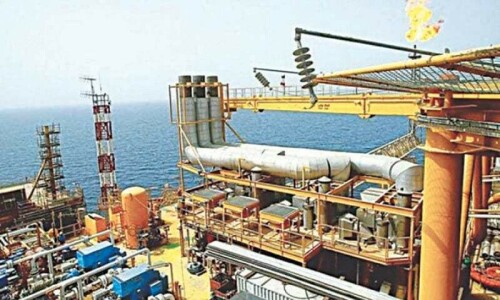ISLAMABAD, Sept 17: The business activity in Pakistan faces lull with overall ‘very low’ ranking of the business environment, highlighting the need for adopting policies to improve the climate, says Pakistan Institute of Economic Development (PIDE) in its ‘Business Barometer’ published on Monday.
PIDE survey says that firms do not perceive the budget 2012-13 to be investment-friendly as ‘no specific policy has been announced to promote investment while taxes on raw materials remain very high’.
Though businesses continue to operate in a challenging environment with stagnant production and sales volumes, they remain somewhat optimistic about their future prospects. Firms that have performed well in terms of production, sales and exports attribute their success to strong demand for their products. Meanwhile firms experiencing sluggish business activity have blamed shortage of utility supplies as a major bottleneck hindering their performance.
Energy shortage is not the top most constraint faced by the firms which may be due to alternative arrangements made by the firms to cope with the energy crisis.
A majority of firms say they have no plans to enhance their productive capacity. Most of the businesses have reported increase in the prices during the first half of the year 2012 and expect them to increase in the second half of the year as well. However, they expect the inflation to remain in single digits.
Over 40 per cent of the firms say they experienced increase in production during January-June 2012 period whereas only 28 per cent of the firms reported decline in production. Thirty per cent of the firms surveyed reported no change in production. Cement and sugar industries saw major increase in their production while textile and fertiliser were the sectors that experienced major decline in production.
The survey notes that trends in sales during the January-June 2012 period was quite similar to the trends in production, and about half of the firms reported increase in their sales, while 29 per cent reported decline, which is consistent with the production patterns.
Textiles and fertiliser sectors experienced major decline in sales due to slack demand and shortage of energy supply, while the cement industry posted significant increase in sales due to strong demand.Export performance of the firms in the first half of the 2012 was not very encouraging. Even though 37 per cent of the firms reported increase in exports and the same number of firms reported decrease in exports but the extent of decline in exports is more than the extent of increase in exports, which explicitly implies decline in overall exports. Decline in exports is mostly observed in the textile sector. Slight improvement in net exports, based on the responses of the firms, is expected in the second half of the year 2012.
Survey results show that more than twice the firms reported increase in prices than the firms which reported decrease in prices during January-June 2012 whereas 43 per cent of the firms reported no change in prices during the same period.
Interestingly, 50 per cent of the firms associate increase in the prices of their products with general inflation followed by a very few firms which cited increase in the cost of production and increase in demand for their products as a source of increase in prices.
In line with the inflation trend, one half of the firms expect prices to increase in the second half of the year 2012 and about the same number of firms expect their prices to remain unchanged. Only a few firms expect the prices of their products to go down.
Firms in the cement industry expect the prices to increase probably due to increase in the demand for their product. The firms in the textile sector also expect output prices to go up despite the decrease in demand. However, they do not expect increase in their sales or exports.
Firms associated with sugar industry also expect the price of sugar to go up. Since sugar industry is ‘cartelised’, it is feared that sugar price will surge in the second half of the 2012 as well, the report said. In order to check the upward trend in the sugar prices, strict policy measures are needed.
In terms of numbers, one-third of the firms expect their prices to increase by 0-5 per cent and 44 per cent expect their prices to go up by 6-10 per cent.
Since half of the firms are expecting prices to remain unchanged or decline we can expect single digit inflation during the second half of the year 2012.The survey projects business perception index (BPI) for the second half of 2012 at 3.77 which is below average. The index ranges from zero to ten, where zero implies the worst and 10 the best. Most of the firms ranked either 3 or 4 or 5.









































Dear visitor, the comments section is undergoing an overhaul and will return soon.